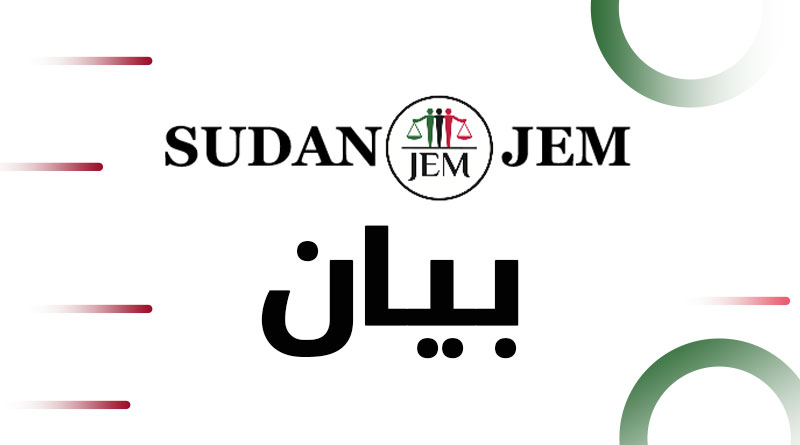The Sudan Justice and Equality Movement (JEM)

www.sudanjem.com
[email protected]
Doha Civil Society Declaration on Darfur-November 2009
A Statement from JEM
– JEM welcomes inputs of all Sudanese people and particularly those of Darfur in finding a way out of the current Sudanese problem in Darfur and equally affirms the principle of inclusive participation of Darfur civil societies in the peace process. Having said that, JEM would like to make the following observations regarding the so-called Darfur Civil Societies, convened in Doha, November 2009.
1. In terms of its procedures, the Doha Convention poses a number of problems
1.1. The mediation failed to define civil society, particularly in the context of the current totalitarian regime in the Sudan and which neither recognizes, nor allows freedom of associations in the country. The mediation failed to declare its criteria for participation in the Convention.
1.2. The Doha meeting proceeded in the absence of important organs of Darfur civil societies including Darfur IDPs, refugees and Darfur people in the Diaspora. Moreover, many individuals listed in the Doha declaration were not present in the Convention.
1.3. The Doha civic declaration premised itself on Mr Mbeki’s AU High-Level Panel on Darfur (AUPD) rather than on free deliberations of those who attended the Doha Convention.
1.4. Mediation did not ensure fair representation and had allowed the venue to be dominated by pro-government representatives and at senior levels.
2. In terms of its contents, the Doha declaration suffers a number of irregularities:
2.1. There was an unnecessary haste in the process resulting in a declaration that is weak, incomprehensive and falls short of aspirations of the people of Darfur.
2.2. The declaration overlooked important issues that are fundamental to genuine peace process like unity of Darfur region, release of detainees and prisoners. It is to be noted that these issues were addressed the Kinana Convention of Sudan’s people, organised Khartoum Government itself.
2.3. Declaration intruded into technical issues like security arrangements that should have been left for the warring parties to deal with.
2.4. Mediation failed to identify exact role to be played with civil societies in the coming peace talks and the implementation reached agreement. It is not clear whether the mediation wants the civil societies to negotiate directly with the government or relay their input through different channels.
2.5. Mediation failed to recognise the national dimensions of the crisis and reduced the debate to local issues with little relevance to the crisis.
3. For continuation and successful conclusion of the process, the mediation must take the following points in consideration:
3.1. Mediation must ensure that participation in deliberations is inclusive and not tilted in favour of a narrow tranche of stakeholders.
3.2. Mediation must avoid attempts by some circles to divide the people of Darfur and set Darfur civil societies against Darfur Armed Movements.
3.3. Mediation must ensure that civil societies are not manipulated for the purpose of lowering the ceilings of demands of people of Darfur.
3.4. Mediation must realise that civil societies have an important role to play but not at the negotiating table of the peace talks.
Ahmed Husain Adam
Spokesperson for JEM
London, December 1st, 2009
حركة العدل و المساواة السودانية
موقع متخصص بنقل آخر الأخبار و البيانات و القرارات لحركة العدل و المساواة السودانية

